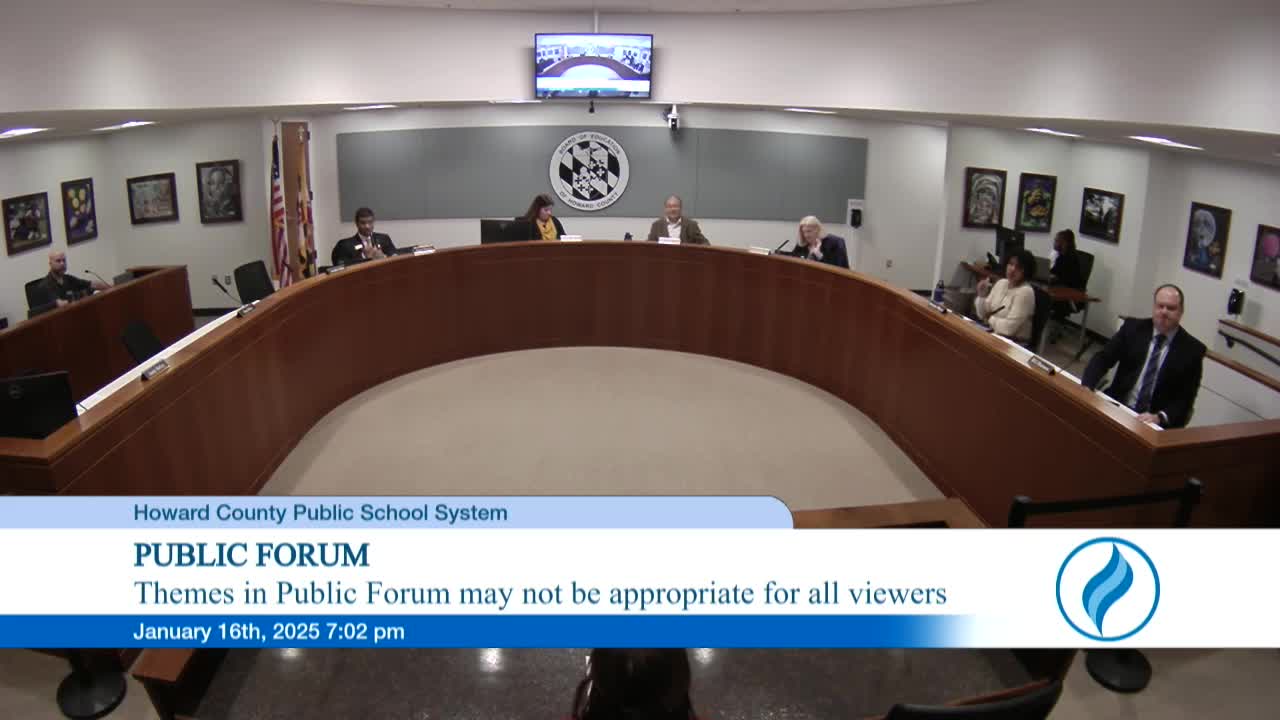Teachers, SLPs and principals appeal for more special-education staff and reduced caseloads
Get AI-powered insights, summaries, and transcripts
Subscribe
Summary
A teacher, a speech-language pathologist and a group of elementary principals told the board they need more special-education staff, case managers and paraeducators to meet IEP requirements and reduce unsustainable workloads.
Multiple speakers at the Jan. 16 public forum and in an administrative presentation urged the Board of Education to add special-education staff and support positions in the FY 2026 budget.
Teacher and parent advocates at public forum described cost-of-living pressures and staffing concerns broadly, while a speech-language pathologist and a coalition of elementary principals gave specific examples of workload and service gaps that they said are impairing student outcomes.
Speech-language pathologist Jen Hopping told the board SLPs must create a detailed electronic log for every session and every student to support required Medicaid billing and IEP documentation. She said each log takes about three to four minutes per student, that SLPs commonly treat about 15 students per day and that PIP time (program implementation planning time) available in schools is often insufficient for that documentation and for required IEP writing, meetings and evaluation reports. Hopping said she and colleagues regularly complete required work outside regular hours and asked the board to fund additional SLP positions and to staff to the district—s own staffing formulas.
Separately, 26 elementary principals representing the Howard County Association of Supervisors and Administrators (HCASA) asked the board to fund three districtwide elementary-oriented special education changes across all elementary schools:
- A non-instructional special-education team leader at every elementary school to coordinate services, support compliance and provide professional development; - More permanent special-education support staff (paraeducators and student assistants) to reduce reliance on temporary hires and improve continuity for students; and - One full-time special-education case manager per grade level (K-5) at each elementary school so case management is aligned to a single grade instead of being spread across multiple grades.
Principals said the proposals would improve service delivery, reduce teacher burnout and strengthen case monitoring, and they provided a 10-day data collection from participating schools for the board—s review. Board members asked for school-level detail and a school-by-school estimate of positions required; principals said they would supply the requested figures to inform budget deliberations.
Ending: Board members asked staff to include these staffing needs in budget discussions and asked principals to supply school-level counts for a clearer fiscal estimate. The principals said they would provide the detailed data at the Feb. 13 board meeting and work with the budget office during the FY 2026 process.
